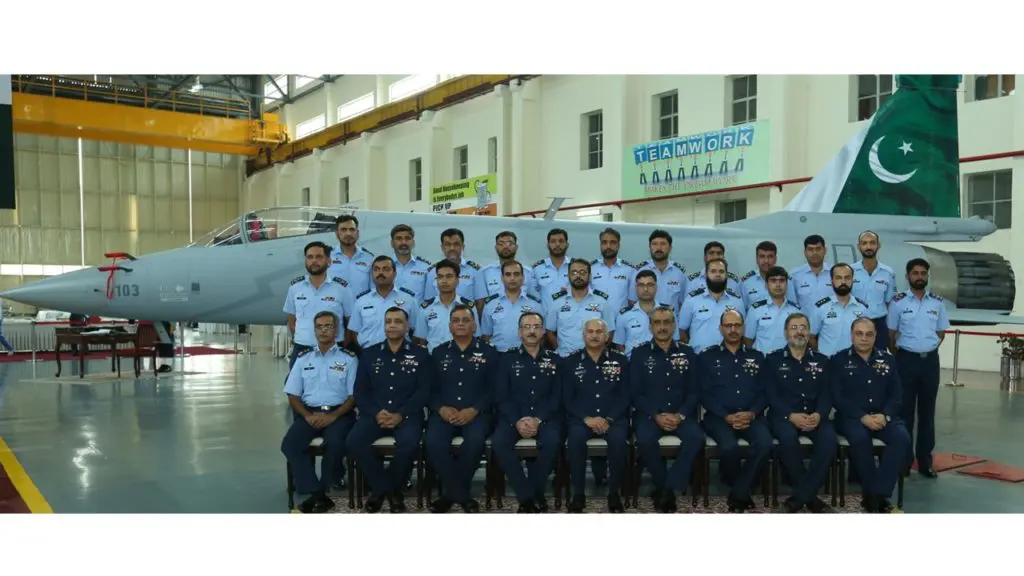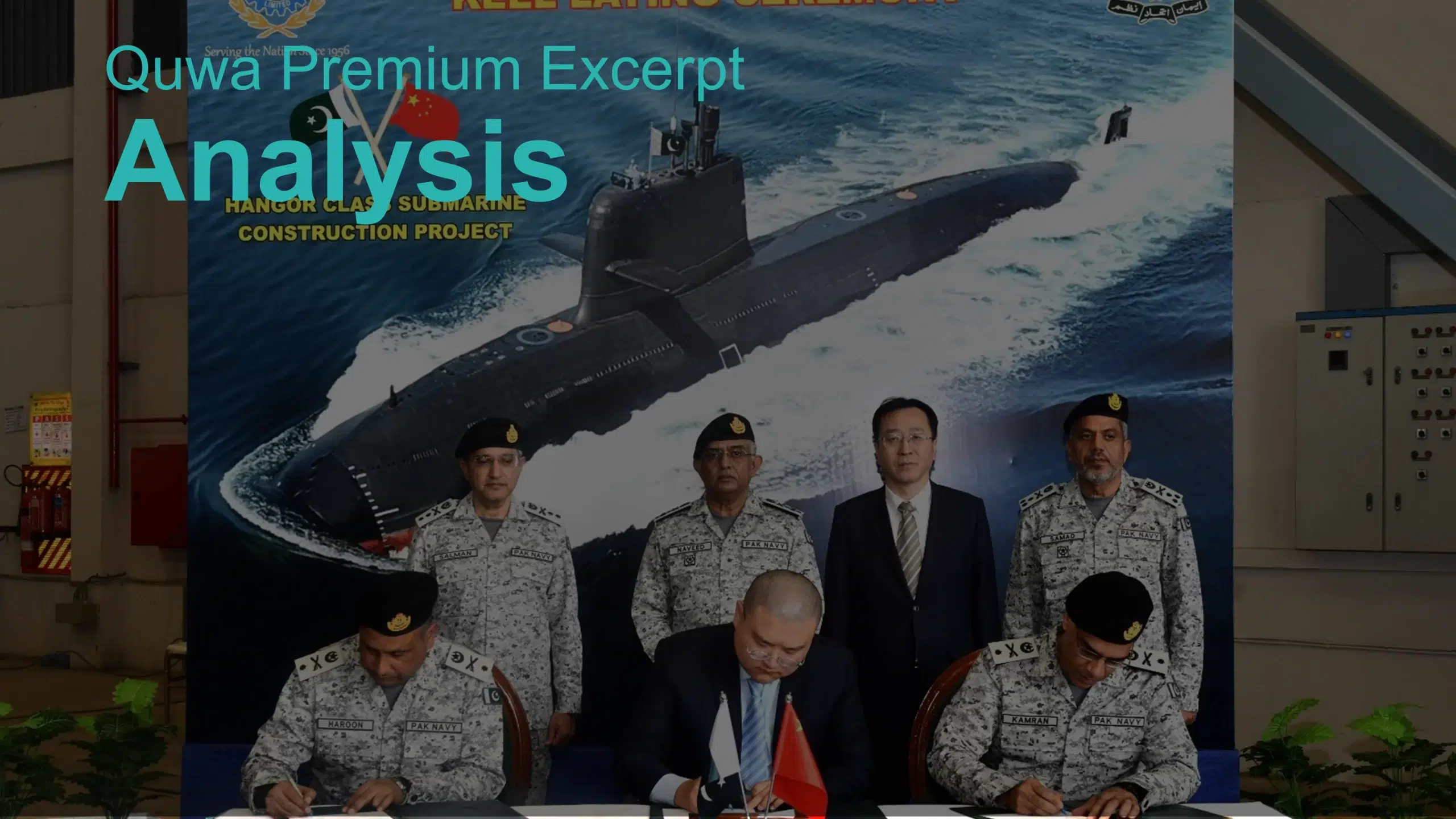On 26 September, the Pakistan Air Force (PAF) announced that it rolled-out its first two locally overhauled JF-17 Thunder multi-role fighters at Pakistan Aeronautical Complex (PAC).
The two aircraft are a part of a batch of four JF-17 Block 1 aircraft that had undergone the major overhaul process, two of which were overhauled by Aviation Industry Corporation of China (AVIC) since November 2017 at AVIC’s Aircraft Maintenance Factory in Chengfei.
According to the Pakistani Ministry of Defence Production’s (MoDP) yearbook for 2017-2018, one of PAC’s “special projects” for that year was the construction of a maintenance, repair and overhaul (MRO) facility.
In April 2019, PAC released a tender calling for the construction of a warehouse for the JF-17 MRO project.
The JF-17 reportedly has an airframe life of 3,000 hours. If the PAF is flying each JF-17 for 150 to 200 hours per year, then the JF-17 has a service life of 15 to 20 years.[1] The first JF-17 Block-1s were delivered to the PAF in 2010, with the first batch now nearing 10 years of age and, in turn, requiring a major overhaul.
There are no reports of the PAF implementing any upgrades to the Block-1s as part of the overhaul. It may defer such activities to a later point, potentially as part of a rebuild or remanufacturing project. If not, the PAF also has the option of supplanting its older JF-17s after 10-15 years with a new JF-17 variant. In either case, it can draw on the investment it made in PAC’s manufacturing and support infrastructure.
In terms of procurement, the PAF currently has a total of 188 JF-17s on its roadmap, these comprise of 50 Block-1s, 62 Block-2s, 50 Block-3s, and 26 twin-seat JF-17Bs.
However, in the absence of a larger medium-to-heavy-weight combat aircraft, the PAF is likely to extend its JF-17 procurement run past 200 aircraft – some reports have cited numbers as high as 275.
The JF-17 Block-3, which will be the JF-17’s most extensive upgrade, is expected to join the PAF fleet by March 2020. In addition to an active electronically scanned array (AESA) radar, the Block-3 is expected to have a helmet-mounted display and sight (HMD/S) system, integrated electronic warfare (EW) suite, and a set of new air-to-air and air-to-surface munitions, among other changes.
[1] Tomislav Mesaric. “Pride of Pakistan”. Air International. December 2013. p.47.




